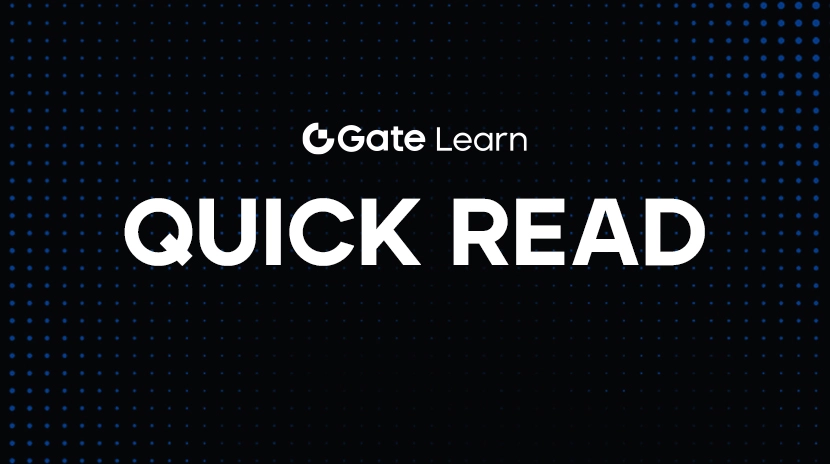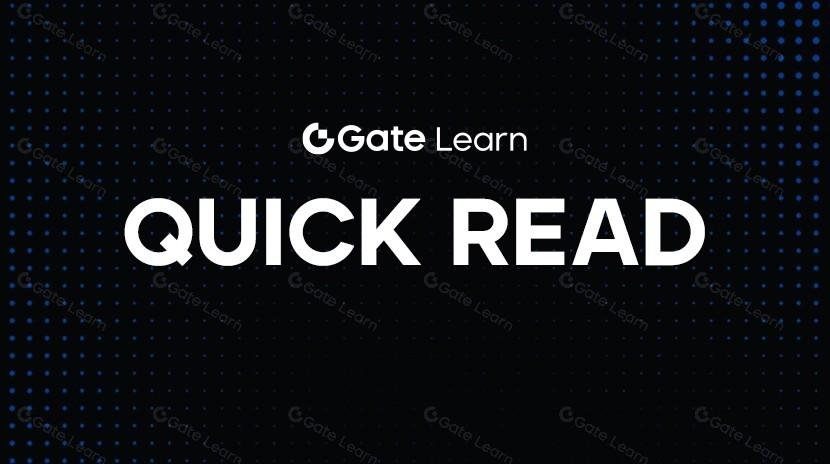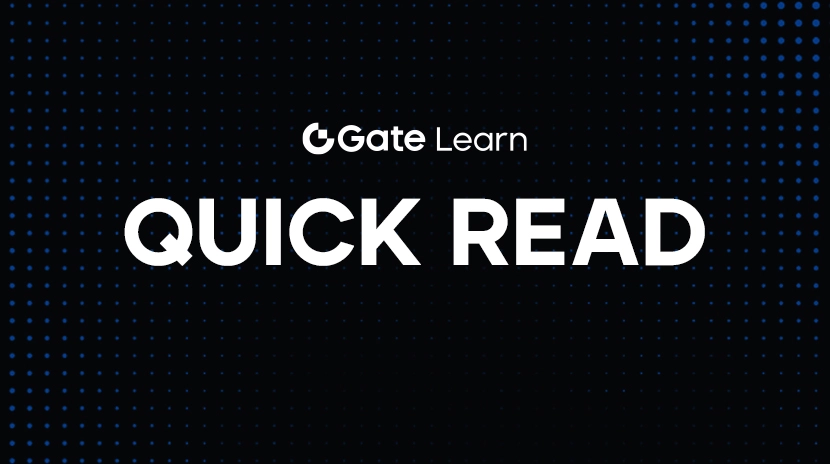¿Cuánto vale HODL? Un análisis profundo sobre el valor de la retención cripto a largo plazo
En el volátil mundo de las criptomonedas, el término 'HODL' se ha convertido en un mantra para muchos inversores. Originalmente un error tipográfico que se transformó en un duradero llamado a 'Hold On for Dear Life,' HODL ha evolucionado en una estrategia adoptada por innumerables entusiastas de las criptomonedas que creen en el potencial a largo plazo de los activos digitales. Pero a medida que los ciclos del mercado cambian y los valores fluctúan, una pregunta común persiste: ¿Cuánto vale HODL? Este artículo explora el concepto de HODL, examina su contexto histórico, analiza sus implicaciones financieras y ofrece información sobre cómo calcular su valor con el tiempo.
HODLing no es simplementeuna estrategia pasiva; es un compromiso con una visión en la que los inversores resisten las tormentas a corto plazo en anticipación de la prosperidad a largo plazo. A medida que el mercado de criptomonedas madura, aquellos que adoptan la mentalidad HODL pueden descubrir que el verdadero valor de sus inversiones se mide no solo en los precios actuales, sino en el crecimiento sostenido y la resiliencia del ecosistema.

Imagen generada por IA
¿Qué Significa HODL?
Los Orígenes de HODL
HODL originadoen 2013 en un foro de Bitcoin cuando un usuario, en medio de una extrema volatilidad del mercado, escribió por error “HODL” en lugar de “hold”. En vez de corregir el error, el término se popularizó como un grito de guerra para inversores decididos a resistir la tormenta en lugar de vender en pánico. Con el paso de los años, HODL se ha convertido en sinónimo de una filosofía de inversión a largo plazo en el espacio cripto.
La Mentalidad HODL
En su esencia, la estrategia HODL consiste en ignorar las fluctuaciones del mercado a corto plazo en favor de ganancias a largo plazo. Los inversores que adoptan este enfoque creen que, a pesar de las inevitables subidas y bajadas, el valor subyacente de activos como Bitcoin, Ethereum y otras criptomonedas aumentará con el tiempo. La pregunta "¿Cuánto vale HODL?" no solo se refiere al valor actual de los activos mantenidos, sino también al valor futuro potencial derivado de la paciencia y convicción.
El Valor Financiero de HODLing
Evaluando Su Cartera
Determinar el valor de HODLing implica analizar el valor de mercado actual de su cartera de criptomonedas. Así es como puede desglosarlo:
Tenencias actuales:
El primer paso es calcular el valor total de sus tenencias de cripto a los precios de hoy. Utilice plataformas como Gate.comoCoinMarketCap.Datos de precio históricos:
Compara el valor actual con el precio al que adquiriste inicialmente el activo. Esto proporciona información sobre el rendimiento general de tus inversiones.Proyecciones a Largo Plazo:
Los analistas a menudo ofrecen proyecciones de precios basadas en varios ciclos de mercado, tasas de adopción y desarrollos tecnológicos. Si bien las proyecciones pueden ser especulativas, ofrecen un vistazo a lo que a largo plazo HODL podría valer. Por ejemplo, muchas previsiones alcistas sugieren que Bitcoin podría alcanzar cifras de seis dígitos en los próximos años.
Calculando Ganancias Potenciales
Consideremos un ejemplo. Supongamos que compraste 1 Bitcoin (BTC) a $10,000 y aún lo tienes. Si los precios actuales del mercado son $50,000, el valor actual de tu cartera es 5 veces tu inversión inicial. Ahora, si crees que en los próximos 5 a 10 años Bitcoin podría alcanzar los $200,000, entonces el valor de tu HODL a largo plazo sería 20 veces tu inversión inicial. Este cálculo no solo muestra el potencial de crecimiento, sino que también destaca el efecto compuesto de mantener activos a través de los ciclos del mercado.
Ciclos del mercado y valor HODL
Los mercados de criptomonedas son conocidos por sus ciclos de auge y caída. El éxito de un inversor HODL depende de resistir estos ciclos. Considere los siguientes puntos clave:
Mercados alcistas: Durante los mercados alcistas, el valor de los activos cripto puede aumentar drásticamente. Los titulares a largo plazo que no venden en la locura a menudo ven ganancias exponenciales.
Mercados bajistas: Por el contrario, durante las caídas, los precios pueden caer precipitadamente. Sin embargo, los HODLers ven esto como oportunidades para acumular más a precios más bajos.
Eventos de reducción a la mitad: Especialmente para Bitcoin, los eventos de reducción a la mitad (que reducen la recompensa del bloque en un 50% cada cuatro años) históricamente se han asociado con aumentos de precio a largo plazo.
El impacto más amplio de HODL en el ecosistema cripto
Estabilizar el Mercado
Cuando los inversores HODL, reducen la oferta circulante disponible, lo que puede contribuir a la estabilidad de precios durante períodos volátiles. Este fenómeno a menudo resulta en un mayor ratio precio-ganancias para los activos de cripto, ya que la presión de venta reducida ayuda a mantener los precios del mercado incluso durante las caídas.
Fomentando la Innovación y la Seguridad de la Red
HODLing no se trata solo de beneficio individual, también beneficia a todo el ecosistema. Al mantener una base estable de titulares a largo plazo, la red experimenta una menor volatilidad y una mayor seguridad. Por ejemplo, una comunidad HODL fuerte puede disuadir las ventas masivas y manipulaciones de precios, fomentando un entorno de mercado más saludable para todos los participantes.
Fomentando una Comunidad de Creyentes
La mentalidad HODL construye una comunidad dedicada de inversores que están comprometidos con el éxito a largo plazo del proyecto. Esta comunidad a menudo se convierte en una fuerza impulsora detrás de las mejoras en la red, el aumento de la adopción e incluso las decisiones de gobernanza en plataformas descentralizadas. Al preguntar "¿Cuánto vale HODL?", no solo estás evaluando el valor monetario, sino también la fuerza colectiva y la resiliencia de la comunidad detrás del activo.
Riesgos y consideraciones para HODLers
Si bien la estrategia HODL ha demostrado históricamente ser lucrativa para muchos, no está exenta de sus riesgos:
Volatilidad del mercado
Las criptomonedas son conocidas por sus extremos cambios de precios. Si bien la volatilidad puede conducir a ganancias significativas, también puede resultar en pérdidas sustanciales. Los HODLers deben estar preparados para largos períodos de incertidumbre y ocasionales caídas del mercado.
Desafíos Regulatorios
El cambiante panorama regulatorio de las criptomonedas puede afectar la dinámica del mercado. Los cambios en las políticas gubernamentales o un mayor escrutinio regulatorio pueden afectar los precios de los activos y el sentimiento de los inversores. Mantenerse informado sobre las tendencias regulatorias globales es esencial para cualquier inversor a largo plazo.
Riesgos Tecnológicos
La tecnología de la cadena de bloques todavía está en sus etapas iniciales. Las vulnerabilidades de seguridad, la obsolescencia tecnológica o la competencia de plataformas emergentes podrían afectar el valor de sus activos HODL. Es crucial realizar una investigación exhaustiva y considerar la diversificación de su cartera para mitigar estos riesgos.
Estrategias para Maximizar tu Valor de HODL
Diversificación
Diversificar su cartera de cripto es una de las mejores formas de mitigar el riesgo en Gate.com. Al distribuir sus inversiones en varios activos, como Bitcoin, Ethereum y altcoins prometedores, puede reducir el impacto de la caída de un solo activo en su cartera en general.
Reevaluación Regular
Mientras mantener es una estrategia a largo plazo, es esencial reevaluar periódicamente tu cartera a la luz de los cambios del mercado, los avances tecnológicos y los objetivos financieros personales en evolución. La reevaluación regular puede ayudarte a identificar oportunidades para reequilibrar tus activos y maximizar posibles ganancias.
Mantente informado
El mercado cripto evoluciona rápidamente. Mantenerse informado a través de fuentes de noticias confiables, análisis de mercado y foros comunitarios es crucial. Participar en plataformas como Gate.compara seguir las tendencias del mercado y ajustar tu estrategia en consecuencia.
Aprovechar el Promedio de Costo en Dólares (DCA)
El promedio de costos en dólares implica invertir regularmente una cantidad fija en tus criptomonedas elegidas, independientemente del precio del mercado. Esta estrategia puede ayudar a mitigar el impacto de la volatilidad y reducir el riesgo de realizar grandes inversiones a precios desfavorables.
Considerar el Staking y los Ingresos Pasivos
Para algunas criptomonedas, el staking puede proporcionar un medio para ganar ingresos pasivos mientras HODL. Al hacer staking de tus activos, obtienes recompensas que pueden aumentar aún más tus rendimientos generales. Sin embargo, es importante comprender los requisitos de staking y los posibles riesgos involucrados.
Conclusión: Desbloqueando el Verdadero Valor de HODLing
La pregunta "¿Cuánto vale HODL?" va mucho más allá de una simple calculación del valor de mercado actual. Encapsula la filosofía de la inversión a largo plazo ante la volatilidad, el poder del crecimiento impulsado por la comunidad y el potencial de retornos exponenciales con el tiempo. Al entender los principios detrás de HODL—diversificación, gestión de riesgos, reevaluación regular de la cartera y aprovechamiento de estrategias como DCA y staking—los inversores pueden desbloquear un valor significativo en sus tenencias de criptomonedas.
En resumen, si bien las fluctuaciones del mercado pueden desafiar incluso a los HODLers más firmes, las recompensas a largo plazo de mantener criptomonedas de calidad pueden ser sustanciales. Acepta la filosofía HODL, invierte sabiamente y recuerda que la paciencia suele ser el activo más valioso en la fiebre del oro digital.
Descargo de responsabilidad: Las inversiones en criptomonedas conllevan riesgos. Siempre realice una investigación exhaustiva antes de invertir.
Artículos relacionados

Valor de los Blox Fruits: Cómo evaluar y maximizar el valor comercial de los Blox Fruits

Valor de Cripto PI: Lanzamiento en Mainnet el 20 de febrero de 2025 & Predicciones de precios futuros

¿Es XRP una Buena Inversión? Una Guía Integral sobre su Potencial

¿Cómo rastrear la transacción USDT BEP20?

Cómo vender Pi Coin: una guía para principiantes


